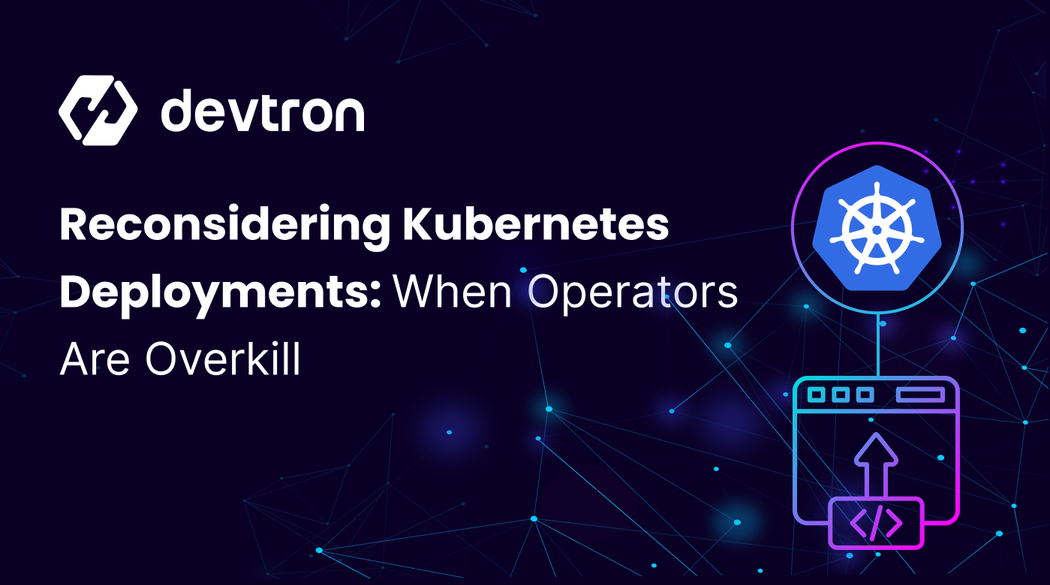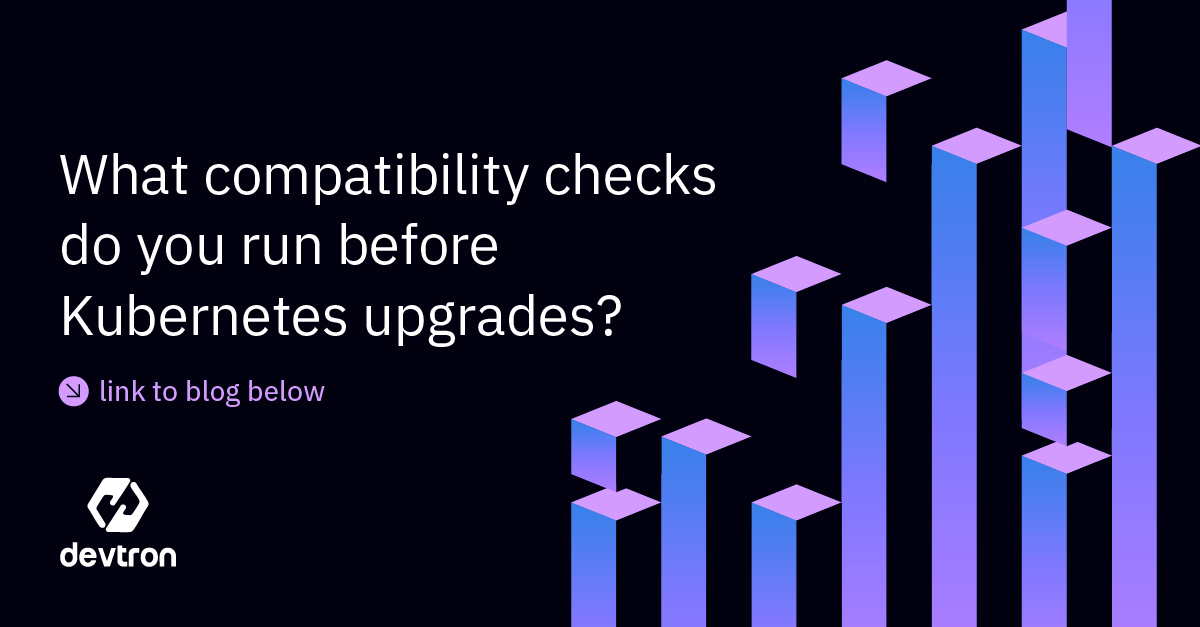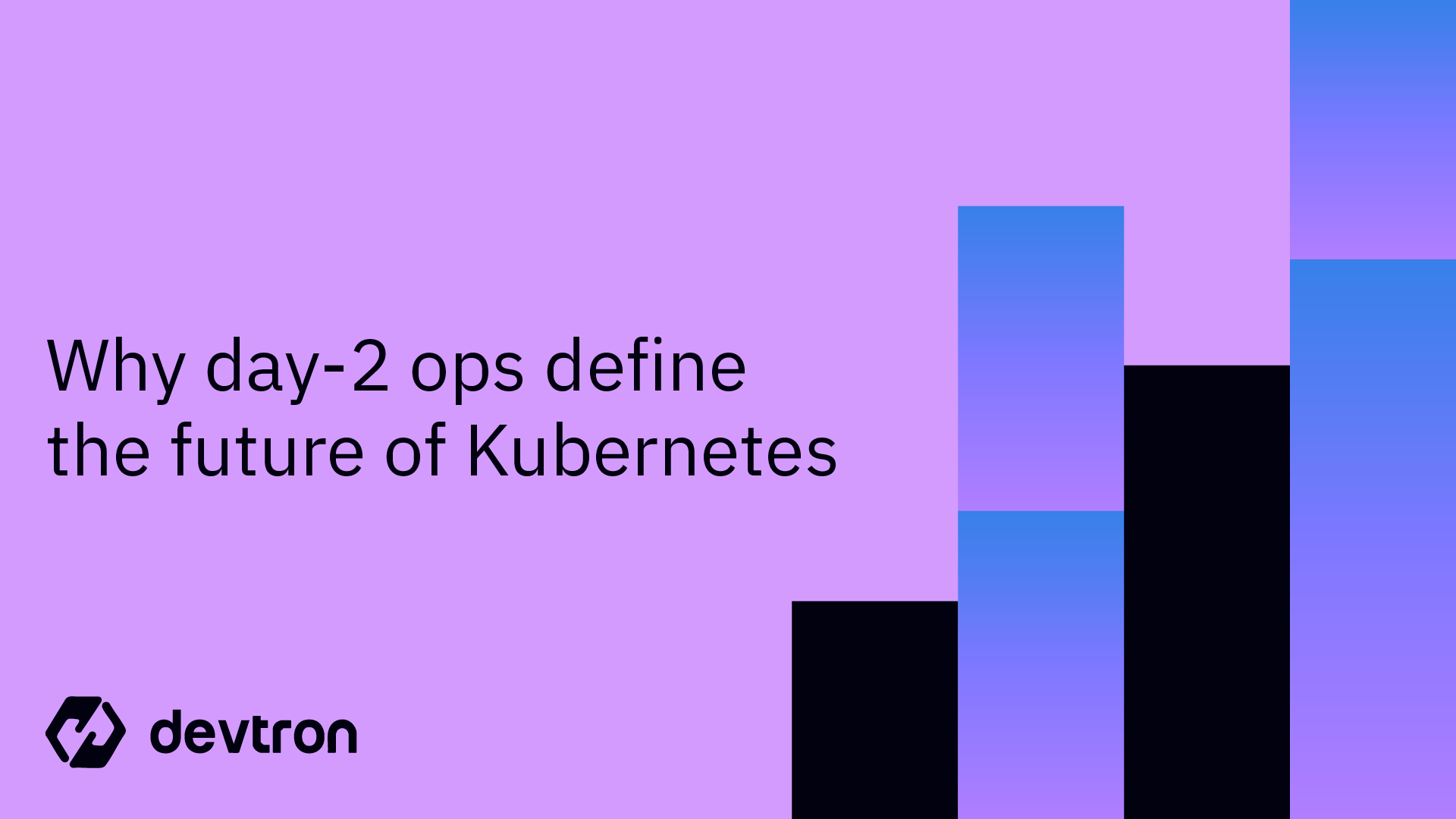In the ever-evolving landscape of container orchestration, Kubernetes stands out as a powerful tool for managing and deploying applications at scale. One of Kubernetes' key features is its extensibility, allowing users to automate complex tasks through custom controllers called Operators. While Kubernetes Operators offer tremendous flexibility and functionality, there are scenarios where their use may be unnecessary or even detrimental to deployment workflows. In this article, we'll explore the concept of when Kubernetes Operators might be overkill and alternative approaches to streamline deployments effectively.
What are Kubernetes Operators?
Out of the box, Kubernetes comes with several different features that make it quite versatile for deploying and scaling applications. However, Kubernetes can fall short in a few areas where it may only provide some basic functionality. In actual use cases, a more advanced implementation of a feature might be required. Kubernetes provides a very powerful functionality called Kubernetes Operators, which helps to extend the functionality of Kubernetes.
Kubernetes Operators offer a very powerful solution to enable the automation of complex clusters and systems based on a set of rules and principles. Kubernetes was designed with automation and extensibility in mind, and Kubernetes operators play a huge role in fulfilling this design principle.
The Promise of Kubernetes Operators
Kubernetes Operators are custom controllers that extend the Kubernetes API to manage complex applications and services. They encapsulate operational knowledge and automate tasks such as deployment, scaling, and lifecycle management. Kubernetes Operators excel at managing stateful applications, databases, and middleware, providing a declarative way to define and manage application-specific logic.
Some of the common use cases where Kubernetes Operators are used include:
- Providing the ability to deploy an application on demand
- Backup an application state or restart from the backed-up state
- Managing application updates including it’s dependencies and configurations
- Expose services to applications that do not support the Kubernetes API
Pitfalls of Kubernetes Operators
While Kubernetes Operators can help extend the functionality of Kubernetes, there are some potential pitfalls. The power of the Kubernetes Operators comes with inherent complexity. Developing and maintaining Operators requires significant effort and expertise. Kubernetes Operators need to be carefully designed, tested, and updated to ensure they function correctly and adapt to changing requirements. Moreover, managing a proliferation of multiple Operators within a Kubernetes environment can lead to operational overhead and complexity, potentially outweighing the benefits they provide.
Scenarios when Kubernetes Operators should be avoided
While Kubernetes Operators offer a solution to manage complex applications, there are situations where their use may not be justified. In some situations, adding the Kubernetes Operators might make the problems worse. Let’s take a look at some of the situations where using a Kubernetes Operator might not be the best solution:
1. Simplicity Requirements: For straightforward deployments or applications with minimal operational complexity, leveraging built-in Kubernetes resources or simpler deployment tools may be more appropriate than developing custom Operators.
2. Resource Constraints: Organizations with limited resources or expertise may find it challenging to develop and maintain custom Kubernetes Operators effectively. In such cases, using off-the-shelf solutions or managed services may prove to be more cost-effective and efficient.
3. Overhead vs. Benefit: Assessing the trade-offs between the benefits of using Kubernetes Operators and the associated overhead is crucial. If the complexity introduced by the Operators outweighs the benefits they provide, alternative deployment approaches should be considered.
Streamline Deployments without Kubernetes Operators
While Kubernetes Operators offer advanced automation capabilities, there are alternative approaches to streamline deployments without the complexity of custom Operators:
1. Helm Charts: Helm is a package manager for Kubernetes that simplifies the deployment and management of applications. Helm charts provide a templated approach to defining application configurations, making it easy to deploy applications consistently across environments.
2. ArgoCD: ArgoCD is a declarative, GitOps continuous delivery tool for Kubernetes. It automates the deployment of applications from Git repositories, ensuring that the desired state of applications is always maintained in the cluster.
3. Devtron: Devtron is a Kubernetes-native CI/CD platform that simplifies the deployment and management of applications on Kubernetes. It provides end-to-end automation for building, deploying, and monitoring applications, reducing the need for custom scripting or complex Kubernetes Operator configurations. Additionally, it has native integrations with ArgoCD for GitOps based deployments and Helm as well for Kubernetes deployments.
| Features | Operators | Helm | ArgoCD | Devtron |
|---|---|---|---|---|
| Ideal for Stateful Application Lifecycle Management | ✅ | ❌ | ❌ | ❌ |
| Stateless Applications | ✅ | ✅ | ✅ | ✅ |
| Full Lifecycle Management | ✅ | ❌ | ❌ | ✅ |
| Supports GitOps | ❌ | ❌ | ✅ | ✅ |
| Built-in Rollback Support | ❌ | ✅ | ✅ | ✅ |
| Customization | ✅ | ❌ | ✅ | ✅ |
| Complex Application Management | ✅ | ❌ | ❌ | ✅ |
| Declarative Approach | ✅ | ✅ | ✅ | ✅ |
| UI Provided | ❌ | ❌ | ✅ | ✅ |
| Security and Policy Management | ❌ | ❌ | ✅ | ✅ |
| Low Learning Curve | ❌ | ✅ | ✅ | ✅ |
| Both CI/CD Pipelines Management | ❌ | ❌ | ❌ | ✅ |
| Suitable for Large Teams | ❌ | ❌ | ✅ | ✅ |
Conclusion: Finding the Right Balance
While Kubernetes Operators offer powerful automation capabilities, they are not always the best fit for every deployment scenario. Organizations must carefully evaluate their deployment requirements, operational capabilities, and resource constraints to determine whether using a Kubernetes Operator is justified. By considering alternative approaches such as Helm, ArgoCD, and Devtron, organizations can streamline their Kubernetes deployments effectively without falling into the trap of Operator overkill.
In conclusion, while Kubernetes Operators have their place in complex deployment scenarios, it's essential to reconsider their use when they introduce unnecessary complexity or overhead. By taking a pragmatic approach and exploring alternative deployment strategies, organizations can streamline their Kubernetes deployments effectively and achieve their automation goals without unnecessary complexity.
If you have any queries, don't hesitate to connect with us. Connect with our growing Discord Community for support, discussions and shared knowledge.







